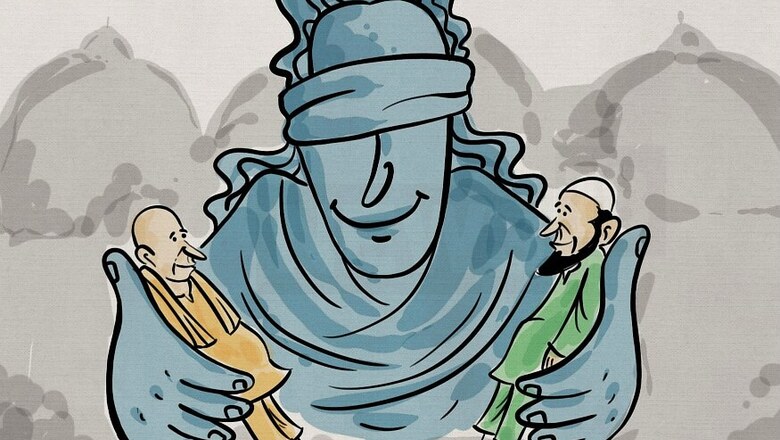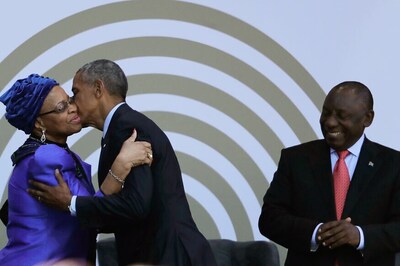
views
New Delhi: The Supreme Court had rejected the final mediation report, which recorded a “settlement” agreement in the Ayodhya case. The top court dismissed the “settlement” since it was not signed by all the parties and also because it was conditional.
The judgment in the Ayodhya case, released a day ago, has for the first time put into public domain what was the final report by the mediational panel, which was headed by retired Supreme Court judge FMI Kalifullah, and included spiritual guru Sri Sri Ravi Shankar and senior lawyer Sriram Panchu as its members.
The five-judge bench has recorded in its verdict that on October 16 when the final arguments were concluded in the batch of appeals relating to the title dispute, the mediation panel submitted a report titled ‘Final Report of the Committee’.
This report remarkably stated that a settlement had been arrived at by some of the parties to the dispute. The settlement was signed by Zufar Ahmad Faruqi, Chairman of the Sunni Central Waqf Board.
The bench then noted that although under the settlement, the Sunni Central Waqf Board agreed to relinquish all its rights, interests and claims over the disputed land, this was subject to the fulfilment of certain conditions stipulated.
“The settlement agreement received by this Court from the mediation panel has not been agreed to or signed by all the parties to the present dispute,” the judgment further pointed out.
The bench then went on to hold that such a settlement cannot be considered as a final one that could bind both the sides in the dispute.
“Moreover, it (the settlement agreement) is only conditional on certain stipulations being fulfilled. Hence, the settlement cannot be treated to be a binding or concluded agreement between the parties to the dispute,” maintained the bench.
In its judgment, the Supreme Court however recorded its appreciation for the efforts made by the members of the mediation panel.
“In bringing together the disputants on a common platform for a free and frank dialogue, the mediators have performed a function which needs to be commended. We also express our appreciation of the parties who earnestly made an effort to pursue the mediation proceedings,” it said.
According to the sources, the “settlement” agreement had suggested that the land in question can be given in acquisition to the government, and the Waqf Board can submit a select list of ASI mosques which can be made available to them for prayers. It had added that all other mosques will be protected under the law. Some of the other lawyers appearing for the Muslim side have however turned down the idea of settlement and said they wanted a judgment from the court.




















Comments
0 comment